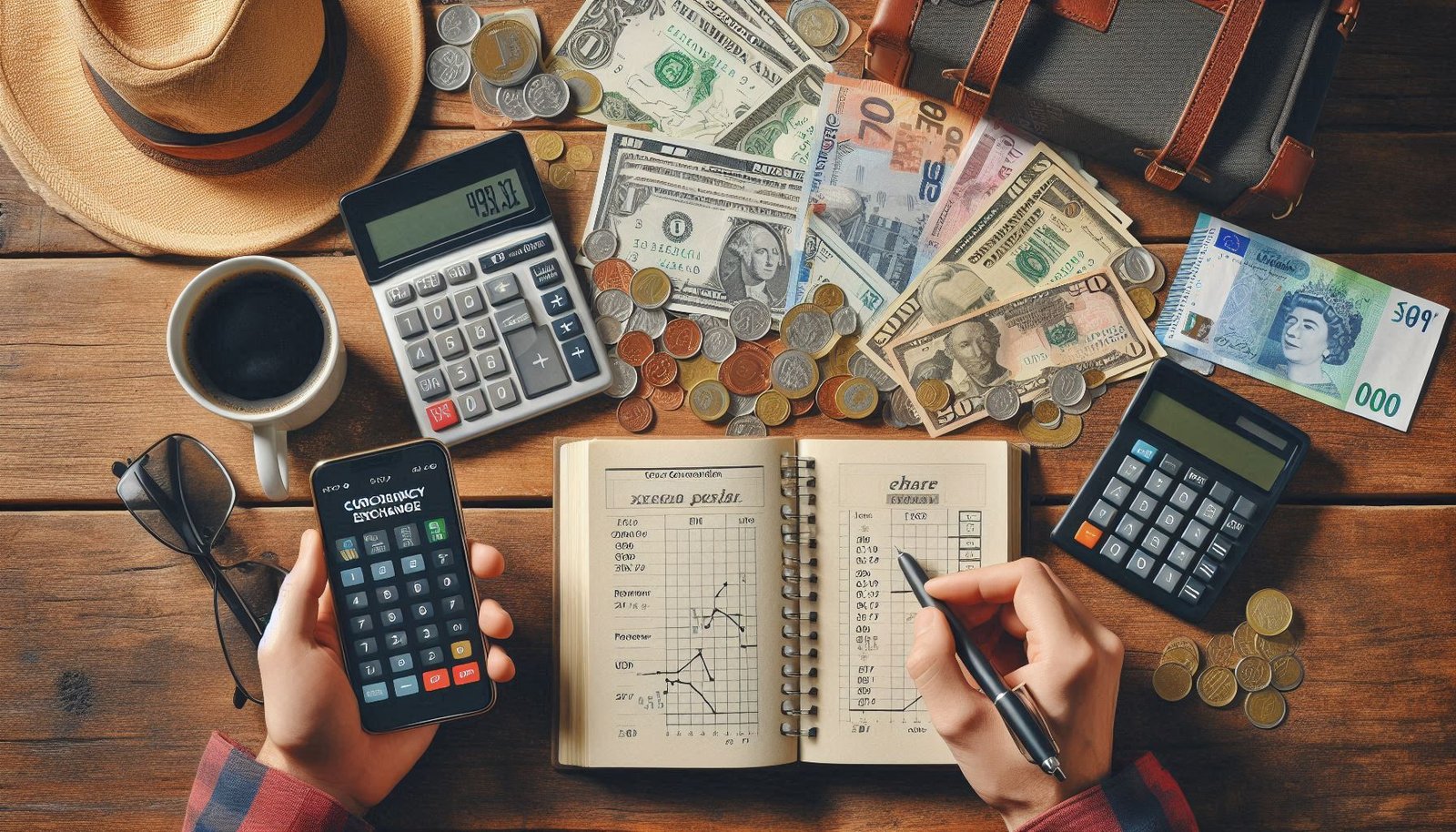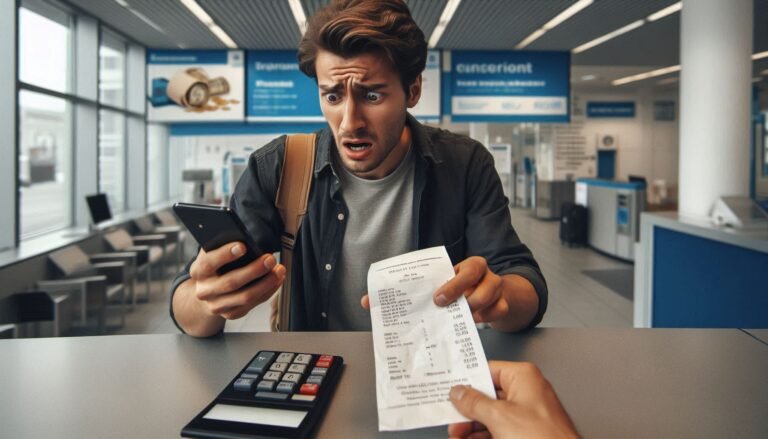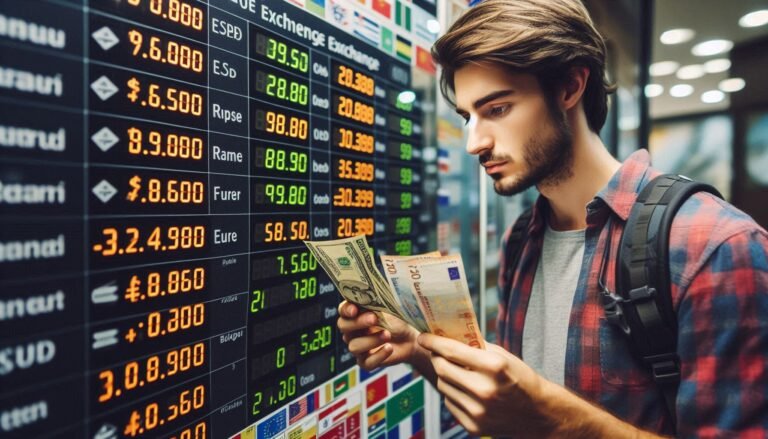Currency Exchange for Beginners: How to Avoid Common Pitfalls and Get the Best Rates
Currency exchange can be confusing, especially if you’re new to it. Whether you’re traveling abroad, investing in foreign markets, or sending money internationally, understanding how exchange rates work can save you money, time, and frustration. In this guide, we’ll walk you through the common pitfalls beginners face when exchanging currency and how to avoid them while getting the best possible rates.
Understanding Currency Exchange Rates
Before diving into the pitfalls, let’s break down the basics.
Currency exchange rates represent the value of one currency compared to another. For example, if 1 USD equals 0.85 EUR, it means one U.S. dollar can be exchanged for 0.85 euros.
However, the rate you see on financial news sites isn’t always the same rate you’ll get when exchanging money.
That’s because:
- Banks and exchange services charge a markup
- Foreign exchange markets fluctuate constantly
- Supply and demand impact rates daily
With that in mind, let’s explore common mistakes beginners make and how you can avoid them.
1. Exchanging Currency at the Airport – The Costliest Mistake
One of the biggest traps travelers fall into is exchanging money at the airport. Airport kiosks offer some of the worst exchange rates because they take advantage of travelers who need cash urgently.
Why It’s a Mistake:
- High fees & poor exchange rates
- Limited options—you’re stuck with what they offer
- Last-minute exchanges lead to rushed decisions
What to Do Instead:
✔ Exchange money before you travel at your bank or an online forex provider
✔ Use an ATM in your destination country (but check your bank’s foreign transaction fees first)
✔ Consider a travel-friendly debit or credit card that offers low foreign exchange fees
2. Not Comparing Exchange Rates
Not all currency exchange services offer the same rates. Banks, online forex providers, and money changers each have different fees and markups.
Why It’s a Mistake:
- You could lose 5-10% of your money on unfavorable rates
- Some services hide fees in the exchange rate instead of listing them separately
- The first rate you see isn’t always the best rate available
What to Do Instead:
✔ Compare rates online before making an exchange (websites like XE.com, Wise, or OANDA can help)
✔ Avoid services that don’t show fees upfront
✔ Use a multi-currency account if you regularly deal with foreign exchange
3. Ignoring Hidden Fees on Credit Cards & Bank Transfers
If you’re making international payments, your bank or credit card provider may charge hidden fees on top of the exchange rate.
Why It’s a Mistake:
- Banks often charge a 3-5% foreign transaction fee
- Credit card companies use higher exchange rate markups
- Wire transfers may come with processing fees that aren’t always disclosed upfront
What to Do Instead:
✔ Look for credit cards with no foreign transaction fees (e.g., travel rewards cards)
✔ Use online money transfer services like Wise or Revolut for better exchange rates
✔ Ask your bank about all fees before sending money internationally
4. Exchanging Large Amounts Without Watching the Market
Currency exchange rates fluctuate daily due to market forces, political events, and economic data. If you’re exchanging a large amount of money, even a small rate change can cost or save you hundreds of dollars.
Why It’s a Mistake:
- Converting money on a bad day can mean huge losses
- Rates fluctuate due to economic news and market trends
- You might panic exchange instead of waiting for a better rate
What to Do Instead:
✔ Track exchange rate trends before exchanging large amounts
✔ Use limit orders or forward contracts if you’re a frequent trader or business owner
✔ Subscribe to currency alerts to exchange at the best possible time
5. Not Knowing the Local Currency Rules
Some countries have strict regulations on currency exchange, including limits on how much you can exchange or withdraw.
Why It’s a Mistake:
- Some countries ban exchanging money on the black market
- You could run out of cash if local ATMs have withdrawal limits
- You might accidentally break currency laws without realizing it
What to Do Instead:
✔ Research local currency rules before traveling or sending money abroad
✔ Check if your destination is cash-heavy or card-friendly
✔ Bring multiple payment options (cash, credit cards, and mobile wallets)
How to Get the Best Currency Exchange Rates Every Time
Now that you know what not to do, here’s a quick checklist to ensure you get the best rates:
- Compare exchange rates online before making a transaction
- Avoid airport exchanges and high-fee services
- Use a credit card with no foreign transaction fees
- Monitor market trends if exchanging large amounts
- Research currency laws in your destination country
By following these tips, you’ll avoid costly mistakes, get more value for your money, and make smarter currency exchange decisions.
Final Thoughts
Currency exchange may seem overwhelming at first, but with a little knowledge and planning, you can avoid common pitfalls and get the best exchange rates possible. Whether you’re exchanging money for travel, business, or investment, being informed will help you save money and make confident financial decisions.







